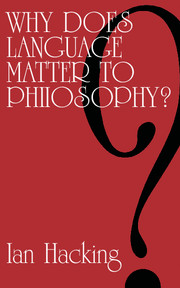11 - Paul Feyerabend's theories
Published online by Cambridge University Press: 05 November 2012
Summary
Theories about what kinds of things there are in the universe occur in almost all our case studies. Berkeley was sure that matter does not exist. The verificationists gladly accepted the view that ‘ontology recapitulates epistemology’ – in particular, what you can't know about, isn't. Now we must touch on another question about existence, not so much ‘What kinds of things are there in the universe?’ as ‘To what extent are the kinds of objects that exist dependent upon the theories and presuppositions of the society for whom they exist?’ I deliberately put the question in a paradoxical way. The immediate answer to this last question is: the existence of objects is in no way dependent upon the theories that we hold! There is, however, a good question lurking beneath the bad one, but because I do not know quite how to ask it I follow the traditional philosophical technique of overasking.
We ended the last chapter with a debate between Malcolm and Putnam, as to whether ‘acid’ in the eighteenth century means the same as ‘acid’ nowadays, or ‘dream’ means the same before and after rem. We approach dangerously near to the stupid question (which, alas, is actually raised in some quarters) of whether acids in the eighteenth century are the same as they are now. As far as the word ‘acid’ is concerned, we had Putnam, on the one hand, robustly proclaiming that we have found out more about acids, but that we are still talking about the same kind of thing, and using words in the same ways, as our predecessors.
- Type
- Chapter
- Information
- Why Does Language Matter to Philosophy? , pp. 115 - 128Publisher: Cambridge University PressPrint publication year: 1975



